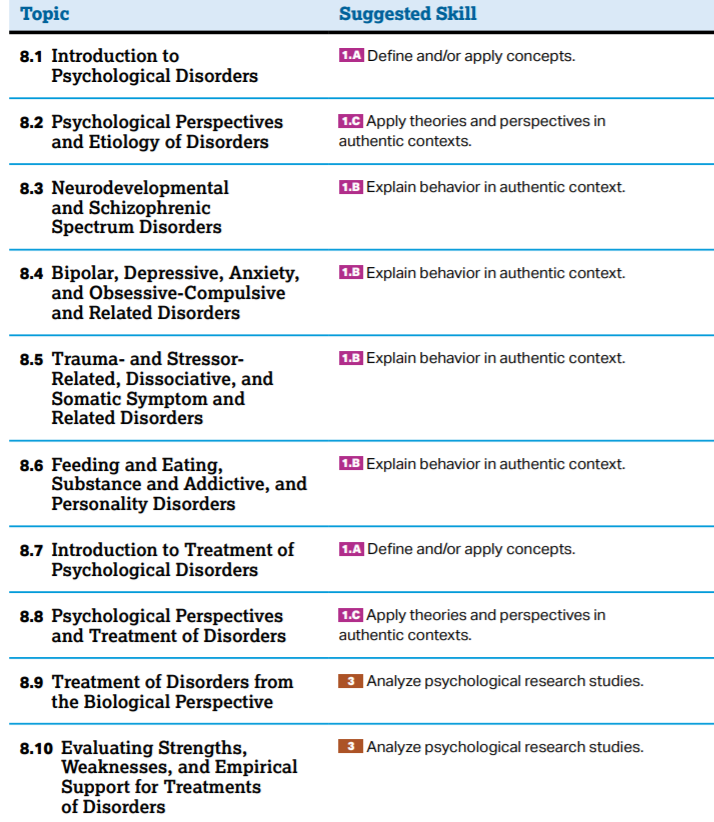Presentations
Helpful LinksVideos
|
Unit 8: Clinical Psychology
AP Exam Weighting: 12-16% Psychologists who study psychological disorders, along with practitioners who treat disorders, often utilize a particular theoretical perspective. Each perspective attempts to explain the origin of a disorder and/or determine the best method for treatment. These explanations and treatments build on the history, theories, and perspectives introduced in the first two units as well as on cognitive psychology in particular. Through observing behavior and engaging in discussion that illuminates a client’s thought process, psychologists gather information and draw conclusions. For some psychologists, a single perspective cannot fully explain a disorder. This leads them to more integrated perspectives to understand and treat psychological disorders. Course Skills: This unit provides students with the opportunity to evaluate many of the psychological concepts, theories, and perspectives they learned about in earlier units through the lens of psychological disorders and their treatments. Students will learn how to evaluate biological, psychological, and sociocultural theories in relation to abnormality. They will be introduced to a survey of psychological disorders and dive deeper into some of the more common disorders and their treatment. Students will conduct valid research, identify ethical flaws, and use appropriate data and data collection processes. Preparing for the AP Exam: Students often have difficulty using key terms and phrases correctly to answer questions posed as scenarios. Teachers can provide students with opportunities to work with scenarios related to psychological disorders. Students will benefit from examples of real-world situations in which particular disorders may be exacerbated or subdued. Students should be able to give the general characteristics and common treatments of the disorder. They should also be able to evaluate the strengths and weaknesses of each treatment and explain why it is deemed appropriate. Students often have difficulty articulating which psychological perspectives are associated with which treatments. When the scenarios involve a certain type of research, students should be expected to define the method and write accurately about validity, ethics, and outcome. Students may encounter questions about research methodology in clinical trials on the exam. They should be able answer questions about the ethics of a research plan, correct modality, and research design. |
